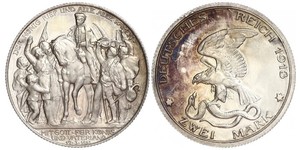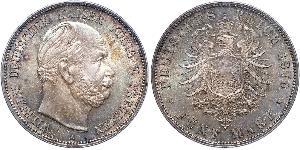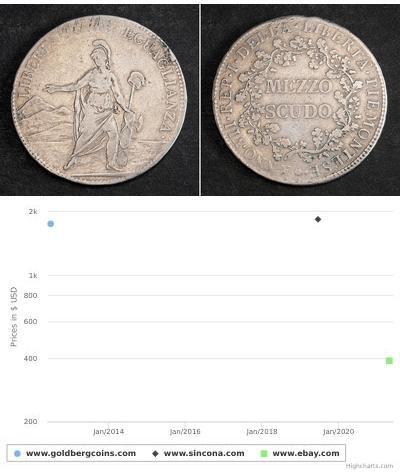German emperors of the Kingdom of Prussia
The Kingdom of Prussia, a powerful state in central Europe, had a series of rulers who also held the title of German Emperor, starting with William I in 1871. Here is a list of the German Emperors who were also Kings of Prussia:
William I (Wilhelm I)
William I, also known as Wilhelm I, was the King of Prussia from 1861 until his death in 1888. He was the first German Emperor (Kaiser) from 1871 until his abdication in 1888. William was born on March 22, 1797, in Berlin, Prussia. He was the eldest son of King Frederick William III of Prussia and Queen Louise.
William I had a long military career, serving in the Prussian army during the Napoleonic Wars. He fought in several battles, including the Battle of Waterloo in 1815. William became King of Prussia in 1861 following the death of his brother, King Frederick William IV. His reign began during a period of significant political upheaval in Europe, including the rise of nationalism and liberalism.
Under the leadership of Prime Minister Otto von Bismarck, William I played a crucial role in the unification of Germany. He supported Bismarck's policies of realpolitik, which aimed to strengthen Prussia and expand its influence. One of the most significant events of William's reign was the Franco-Prussian War of 1870-1871. Prussia's victory in this war led to the creation of the German Empire, with William proclaimed as German Emperor (Kaiser) on January 18, 1871, in the Hall of Mirrors at the Palace of Versailles.
Despite his conservative leanings, William I respected the constitution and worked closely with the Prussian parliament (Landtag). He also supported social and economic reforms to modernize Prussia and Germany. William I died on March 9, 1888, in Berlin, at the age of 90. He was succeeded by his son, Frederick III, who reigned briefly before his own death later that year. William I's grandson, William II, became the last German Emperor before the abolition of the monarchy in 1918.
Frederick III (Friedrich III)
Frederick William Nicholas Charles, known as Frederick, was born on October 18, 1831, in Potsdam, Prussia. He was the eldest son of Crown Prince Frederick William (later King William I) and Princess Royal Victoria, daughter of Queen Victoria of the United Kingdom. Frederick had a distinguished military career and served in various Prussian army regiments. He participated in the Second Schleswig War in 1864 and the Austro-Prussian War in 1866.
In 1858, Frederick married Victoria, the eldest daughter of Queen Victoria of the United Kingdom. Their marriage was a love match and strengthened ties between the German and British royal families. Frederick served as Crown Prince of Prussia from 1861 until his accession to the throne in 1888. He was known for his liberal and reformist views, advocating for constitutional monarchy and social reform.
Frederick succeeded his father, King William I, as German Emperor and King of Prussia on March 9, 1888. However, his reign was tragically short-lived, as he was already suffering from terminal throat cancer at the time of his accession. Despite his illness, Frederick attempted to implement liberal reforms during his brief reign. He appointed liberal-minded ministers and expressed support for political reforms, including greater parliamentary involvement in government.
Frederick III's reign lasted only 99 days, making him one of the shortest-reigning monarchs in German history. He died on June 15, 1888, at the age of 56. He was succeeded by his son, who became Emperor William II. Frederick III is often viewed as a tragic figure in German history, as his progressive ideas and potential for reform were cut short by his premature death. His brief reign is sometimes referred to as the "Three-Month Emperor" (Dreikaiserjahr) in German history.
William II (Wilhelm II)
William II, also known as Wilhelm II in German, was the last German Emperor (Kaiser) and King of Prussia, reigning from 1888 until his abdication in 1918. William was born on January 27, 1859, in Berlin, Prussia, as the eldest grandson of Emperor William I. His father was Crown Prince Frederick (later Emperor Frederick III), and his mother was Victoria, Princess Royal, the eldest daughter of Queen Victoria of the United Kingdom. William received a militaristic upbringing and was groomed for a career in the military. He attended the University of Bonn and later served in the Prussian army, where he rose through the ranks.
William became German Emperor and King of Prussia upon the death of his father, Emperor Frederick III, on June 15, 1888. His reign began amidst great expectations, but he would soon clash with political leaders and diplomats, particularly Chancellor Otto von Bismarck. William's foreign policy was marked by his desire for a "place in the sun" for Germany and its imperial ambitions. He embarked on a policy of Weltpolitik (world politics), seeking to expand Germany's colonial empire and naval power. His actions contributed to tensions in Europe and the build-up to World War I.
William was a controversial figure in domestic politics. He clashed with the German parliament (Reichstag) over issues such as military spending and social reform. He also attempted to exert influence over government policy, leading to conflicts with his chancellors. William's leadership during World War I was widely criticized. He supported Germany's entry into the war and played a role in shaping military strategy. However, as the war dragged on and Germany faced mounting defeats, his popularity declined. In the face of mounting pressure and unrest at home, William abdicated on November 9, 1918, following the outbreak of the German Revolution. He went into exile in the Netherlands, where he lived until his death in 1941.
William II's reign is remembered as a period of great change and upheaval in German and European history. His policies and decisions contributed to the destabilization of Europe and the outbreak of World War I. After his abdication, he became a symbol of the old order and the consequences of unchecked imperial ambitions.
You may be interested in following coins
2025-05-28
- Live Coin Catalog's improvements / coins uploading
990 coins were uploaded from 2025-05-21 to 2025-05-28
One of them is:
2025-05-24
- Historical Coin Prices







